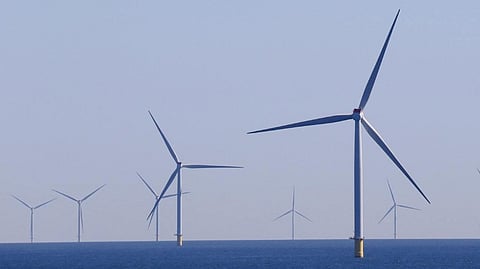Renewables fantasy falters, falls well short of global COP28 targets
A record 740 gigawatts of renewable energy capacity was added worldwide last year, still not enough to meet a global goal to triple renewable capacity by 2030, a report by the Paris-based activist "thinktank" REN21 showed on Tuesday.
A target was set at the COP28 UN climate conference in 2023 to triple the amount of renewables such as wind and solar to keep a (much disputed) 1.5 degree Celsius (2.7 Fahrenheit) warming limit this century within reach.
Analysts tracking progress have said the world is not on course to triple capacity.
Trajectories show a shortfall of 6.2 terawatts towards the goal, which is more than all renewables deployed to date, the report showed.
Solar photovoltaic accounted for 81 per cent of new renewable power capacity last year as rooftop solar increased in developing countries and technology costs continued to fall. Solar PV is the only renewables technology on track to deliver its contribution to the global tripling capacity target.
Last year and in early 2025 many countries rolled back or delayed climate change measures as the US withdrew from the Paris Agremeent and New Zealand reversed its ban on offshore oil and gas exploration.
Oil and gas companies and banks have also scaled back investments in the energy transition. Trade measures, even before US President Donald Trump's tariff action this year, also limited renewable development in 2024 as the West protected its industries against cheap Chinese competition.
"We are deploying renewables in record numbers, but we are not building the systems needed to transition to a renewables-based economy," said Rana Adib, Executive Director of REN21.
"Without coherent policies, coordinated planning, and resilient infrastructure including grids and storage, even record deployment cannot deliver speedy and lasting transformation," she added.
(Reporting by Nina Chestney; editing by Barbara Lewis)


